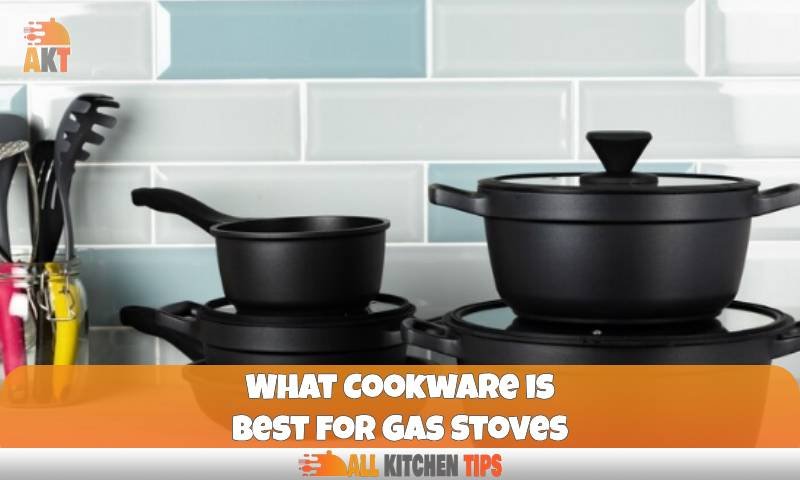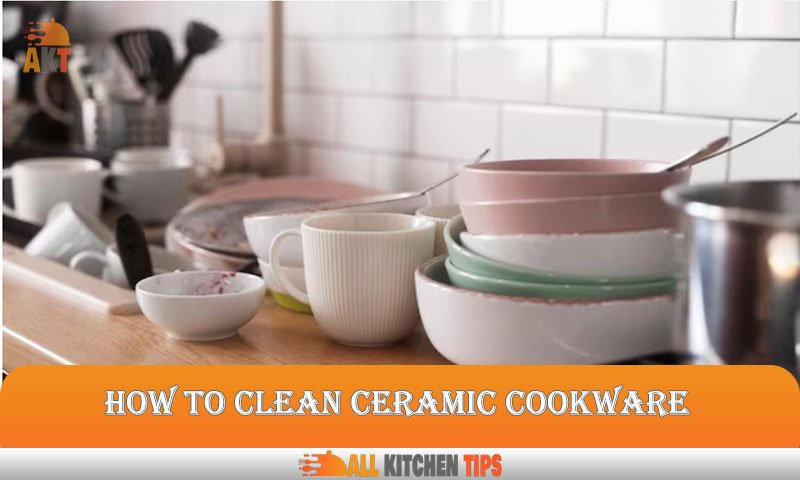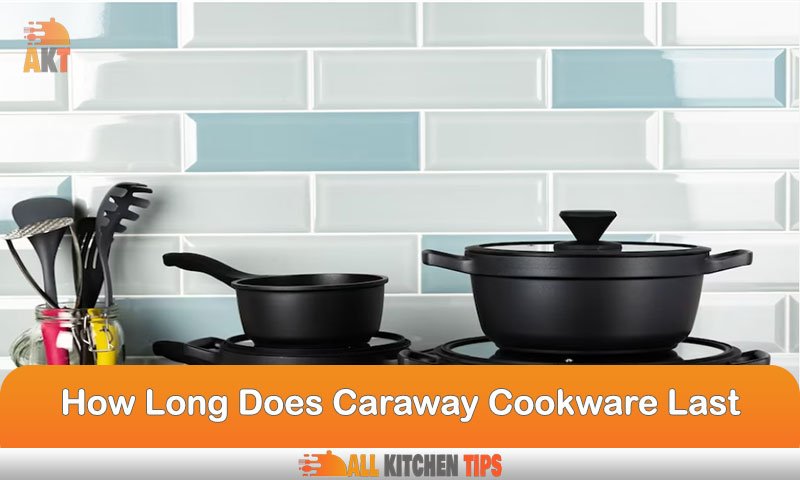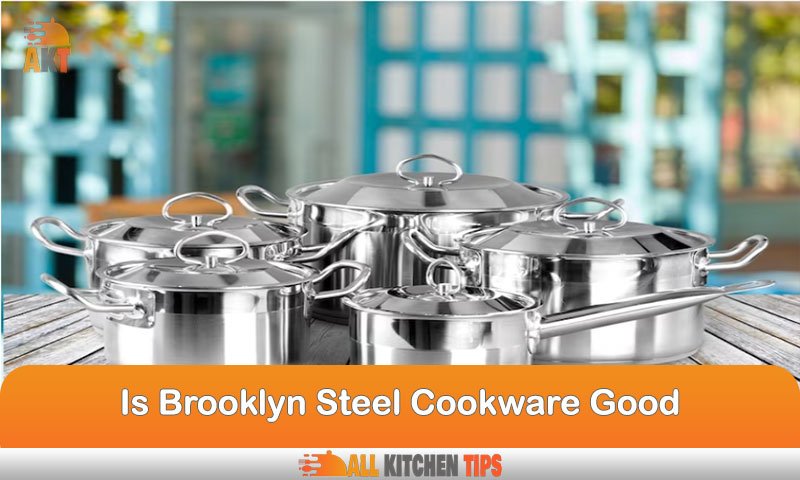The best cookware for gas stoves is made of materials that conduct heat evenly and quickly, such as stainless steel, copper, or cast iron. Cooking on a gas stove requires more control and precision than other types of stoves.
Choosing the right cookware is crucial for achieving the best results. The type of cookware material affects how evenly heat is distributed and how quickly it responds to changes in temperature. Stainless steel, copper, and cast iron are the best materials for gas stoves since they conduct heat evenly, respond quickly to changes in temperature, and are durable.
However, non-stick coatings and aluminum materials should be avoided since they may not withstand high heat levels. In this article, we will explore the different types of cookware materials and what to look for when selecting the best cookware for gas stoves.
Types Of Gas Stove Cookware
Gas stoves are a popular choice among home cooks and professional chefs alike for their precise heat control and immediate temperature adjustments. However, the type of cookware you use with a gas stove can impact your cooking experience, as not all materials are suitable for this cooking method.
In this blog post, we will discuss the different types of cookware options available for gas stoves, compare and contrast their features, and recommend the best type of cookware for specific cooking needs.
There are several types of cookware suitable for gas stoves. The most common materials are cast iron, stainless steel, aluminum, and ceramic. Each material has its advantages and disadvantages, and it’s essential to consider a few factors before deciding which one to use.
Cast Iron
Cast iron cookware is known for its durability and heat retention properties, making it an excellent choice for gas stoves. Cast iron pans and skillets typically last a lifetime if maintained properly. They are also versatile and can be used for a wide range of cooking methods, including frying, searing, baking, and even slow cooking.
Pros:
- Retains heat well
- Durable and long-lasting
- Suitable for high-heat cooking
- Versatile
Cons:
- Heavy
- Requires seasoning to maintain non-stick properties
- Rusts if not seasoned or cared for properly
Recommended for:
- Searing
- Baking
- Slow cooking
Stainless Steel
Stainless steel is a popular choice for gas stove cookware due to its durability, non-reactive nature, and excellent corrosion resistance. Stainless steel is also easy to clean and requires minimal maintenance. While it’s not the best conductor of heat, it’s a great choice for recipes that require precise temperature control.
Pros:
- Durable and long-lasting
- Non-reactive
- Corrosion-resistant
- Easy to clean
Cons:
- Poor heat conductivity
- Food might stick
Recommended for:
- Sautéing
- Braising
- Simmering
Aluminum
Aluminum cookware is another popular choice for gas stoves due to its excellent heat conductivity. Aluminum cookware heats up quickly and evenly, making it perfect for recipes that require rapid temperature changes. It’s also lightweight and easy to handle, making it a great choice for everyday cooking.
Pros:
- Excellent heat conductivity
- Lightweight and easy to handle
- Heats up quickly and evenly
Cons:
- Not as durable as other materials
- Can react with acidic foods
Recommended for:
- Stir-frying
- Boiling
- Cooking dishes that require precise temperature control
Ceramic
Ceramic cookware is gaining popularity among health enthusiasts due to its non-toxic nature. It’s also an excellent choice for gas stoves, as it heats up slowly and evenly. Ceramics is versatile and can be used for a range of cooking methods, including baking, frying, and even stovetop cooking.
Pros:
- Non-toxic
- Non-reactive
- Heats up slowly and evenly
Cons:
- Not always dishwasher safe
- Can easily crack or chip
Recommended for:
- Baking
- Stovetop cooking
- Frying
Choosing the right cookware for your gas stove will depend on the type of dish you’re making and your personal preferences. Generally, it’s best to choose a material that is durable, non-reactive, and can withstand high heat without warping or damaging it.
The right cookware will not only improve your cooking results but also make the cooking experience more enjoyable.
Factors To Consider When Choosing Gas Stove Cookware

When it comes to cooking on a gas stove, it’s essential to choose the right cookware to ensure your food is cooked evenly and efficiently. There are several factors to consider when selecting the perfect cookware for your gas stove.
So, let’s dive into the essential factors that you need to keep in mind –
Discuss The Essential Factors to Consider When Selecting The Right Cookware For A Gas Stove, Such As Size, Shape, Weight, And Material
Cookware is an essential purchase for any home cook, and choosing the right one can make all the difference when it comes to preparing your favorite dishes to perfection. Here are the essential factors to consider:
- Size: Size matters when it comes to selecting cookware for a gas stove. Always choose a pot or pan that is appropriate for the burner size. If the pot is too small, the flame can easily flare up, and if it’s too large, it can waste gas and result in uneven cooking.
- Shape: The shape of the cookware impacts how it sits on the burner. Always select cookware with a flat bottom and a straight edge to ensure it fits and balances well on a gas stovetop.
- Weight: The weight of cookware is essential, especially for safety reasons. Lightweight pots and pans may tip over and spill food, causing burns, and heavy pots may be hard to handle. Always select cookware that feels comfortable and secures in your hands.
- Material: The material of the cookware has a significant impact on heat distribution and efficiency. Different materials have different cooking properties, so consider the type of food you’re going to cook and the heat output of your gas stove.
Highlight How The Diameter Of The Cookware Affects Heat Distribution And Cooking Efficiency
Cookware’s diameter has a direct impact on heat distribution and cooking efficiency. The following points highlight the importance of cookware diameter:
- Larger pots and pans take longer to heat up and cool down than smaller ones. If you’re cooking for a few people, consider using smaller cookware to avoid energy consumption.
- Using a pot with a smaller diameter than the burner will result in uneven heating, causing the flames to flare up and damage the underside. A pot with a larger diameter than the burner will cause heat loss, resulting in undercooked or overcooked food.
Explain How The Shape And Weight Impact The Stability of The Pots And Prevent Food Spills
Apart from heat distribution, the shape and weight of your cookware have a significant impact on the stability of the pots and pans. Here are some points to consider:
- A heavy pot will be stable on the burner, ensuring zero chances of tipping over.
- A wide base is more stable on a gas stove, preventing spills and accidents.
- The pot lid’s weight is essential to keep the lid from rattling when the gas flame flares up.
- Choosing cookware with straight sides and a long handle will safeguard from spills and accidents.
Discuss The Pros And Cons of Different Materials And How They Relate to A Gas Stove’S Heat Output And Flame
Different types of cookware materials have pros and cons when it comes to their heat distribution and the flame level of a gas stove. Let’s take a look:
- Stainless steel cookware is durable and easy to clean but may cause hot spots and uneven heating on a gas stove.
- Cast iron is an excellent conductor of heat, retaining temperature for longer periods. It is perfect for searing and simmering, but it takes longer to heat up than other materials.
- Aluminum cookware is lightweight and a quick conductor of heat, perfect for recipes that need rapid temperature changes. But aluminum may warp and discolor over time when exposed to high heat levels.
- Copper cookware is excellent for cooking, as it distributes heat quickly and evenly. However, it may be expensive and requires constant maintenance and polishing.
Choosing the right cookware for your gas stove will make all the difference when preparing your favorite dishes. Keep the size, shape, weight, and material in mind, and you’ll be on your way to perfecting your culinary skills.
Maintenance And Care For Gas Stove Cookware

Gas stoves are a cook’s best friend. They offer a quick and even heat source that is perfect for cooking up a storm. However, to ensure your gas stove cooking experience is top-notch, you need to invest in the right cookware.
In this section, we will look at essential maintenance and care tips that will help your gas stove cookware last longer and perform optimally.
Provide Tips on How to Clean And Maintain Different Types of Cookware For Longevity And Optimum Performance
Stainless steel cookware:
- Wash the cookware immediately after use with warm water and mild soap.
- For stubborn stains, soak in a mixture of vinegar and baking soda for a few minutes, then scrub gently with a non-abrasive sponge.
- Avoid using bleach, steel wool, or harsh detergents, which can damage the stainless steel surface.
- Dry the cookware immediately after washing to prevent water spots and rust.
Non-stick cookware:
- Clean the cookware with a soft sponge and mild detergent after each use.
- Avoid using metal utensils, which can scratch the non-stick surface.
- Do not soak the cookware in water or place it in the dishwasher.
- Store the non-stick cookware separately from other pots and pans to prevent scratching.
Cast iron cookware:
- Rinse the cookware with hot water and use a brush to remove any food residue.
- Avoid using soap, which can strip the seasoning of the cast iron surface.
- Dry the cookware thoroughly with a kitchen towel.
- Apply a thin layer of oil to the surface of the cast iron cookware to protect it from rust.
Highlight The Maintenance Pitfalls That One Should Avoid, Such As Soaking Cast Iron In Water Or Using Abrasive Cleaning Materials On Non-Stick Pans
Soaking cast iron cookware in water:
- Cast iron cookware should not be soaked in water as it can cause rusting and damage the surface.
- Instead, rinse with hot water and use a brush to remove any food residue.
Using abrasive cleaning materials on non-stick pans:
- Non-stick cookware should not be cleaned with steel wool, abrasive sponges, or harsh cleaning materials as they can scratch the surface.
- Use a soft sponge and mild detergent to clean the non-stick cookware.
Taking care of your gas stove cookware is critical for it to last longer and perform optimally. Always follow the manufacturer’s care instructions and avoid the maintenance pitfalls mentioned above. Follow these tips, and your gas stove cookware will be in top-notch shape for all your cooking needs.
FAQs
What Kind of Cookware Works Best on Gas Stoves?
Cookware that conducts heat quickly and evenly, such as stainless steel, copper, and aluminum.
Can You Use Non-Stick Cookware On A Gas Stove?
Yes, non-stick cookware can be used on a gas stove, but be sure to use a low or medium flame.
Is Cast Iron Good For Gas Stoves?
Cast iron cookware is excellent for gas stoves due to its even heat distribution and durability.
Why Does The Type of Cookware Matter on A Gas Stove?
The type of cookware matters on a gas stove because gas stoves heat up quickly and therefore require cookware that can distribute heat evenly.
Conclusion
Choosing the right cookware for your gas stove is essential for efficiency and safety. It’s crucial to invest in heavy-bottomed, sturdy materials like stainless steel and cast iron to distribute heat evenly and prevent hot spots. It’s also wise to avoid materials that are highly reactive, like copper and aluminum, to prevent corrosion and damage to your cookware.
In addition, choosing the right size of cookware for your stove burner is important to avoid heat loss and long cooking times. Lastly, proper maintenance and cleaning of your cookware will also contribute to its longevity and performance. With these tips in mind, you can confidently choose the best cookware for your gas stove and enjoy delicious and hassle-free cooking.





